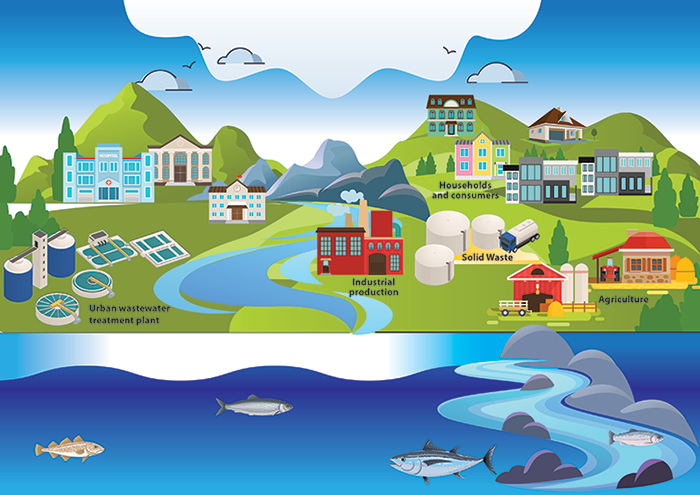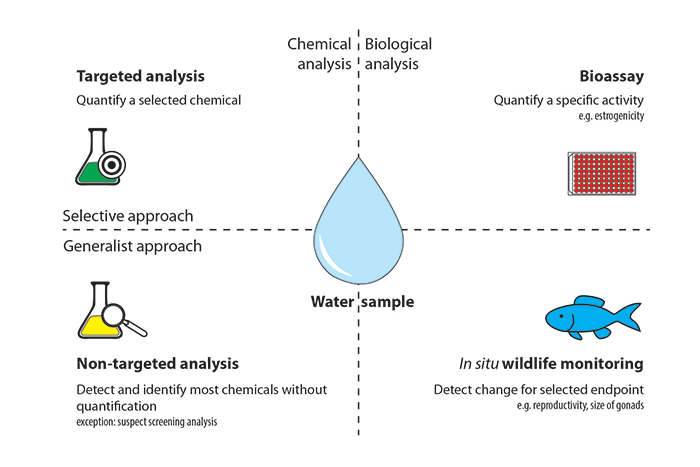Chemical safety and biosafety

Endocrine Disrupting Chemicals in Freshwater
Monitoring and Regulating Water Quality
Endocrine disrupting chemicals (EDCs) are contaminants of emerging environmental and
health concern that have been detected in freshwater, wastewater and drinking water.
They interfere with the endocrine system in humans and wildlife, and produce adverse
effects such as developmental, reproductive, neurological and immune effects. Their
presence in water raises concerns for the integrity of ecosystems and biodiversity.
Addressing the challenges of EDCs in water is particularly complex due to their ability
to trigger adverse effects at very low concentrations, their potency in mixtures with
other chemicals, and the vast range of sources and entryways of this group of chemicals
into the environment. This report presents new water quality monitoring methods, such
as bioassays and non-targeted analysis, that are well equipped to capture the impacts
of EDCs in water. These new methods supplement the traditional substance-by-substance
chemical analysis of water quality. The report also outlines policy instruments to
manage the chemicals’ lifecycle from source to end-of-pipe. It proposes tools and
regulations that respond to the negative effects of endocrine disruption, even if
the culprit chemical is still unknown. The analysis draws on case studies from OECD
countries to provide practical examples and concrete policy actions.
Available from October 12, 2023
In series:OECD Studies on Waterview more titles
TABLE OF CONTENTS
| Foreword | |
| Abbreviations and acronyms | |
| Executive Summary | |
| The challenge of endocrine disruptors in freshwater | |
| Water quality monitoring for endocrine disrupting chemicals: from traditional chemical analysis to effect-based monitoring | |
| Policy options to reduce and manage endocrine disruption in freshwater | |
| Action plan on monitoring and assessment of EDCs in freshwater | |
| Glossary |
Powered by OECD iLibrary

